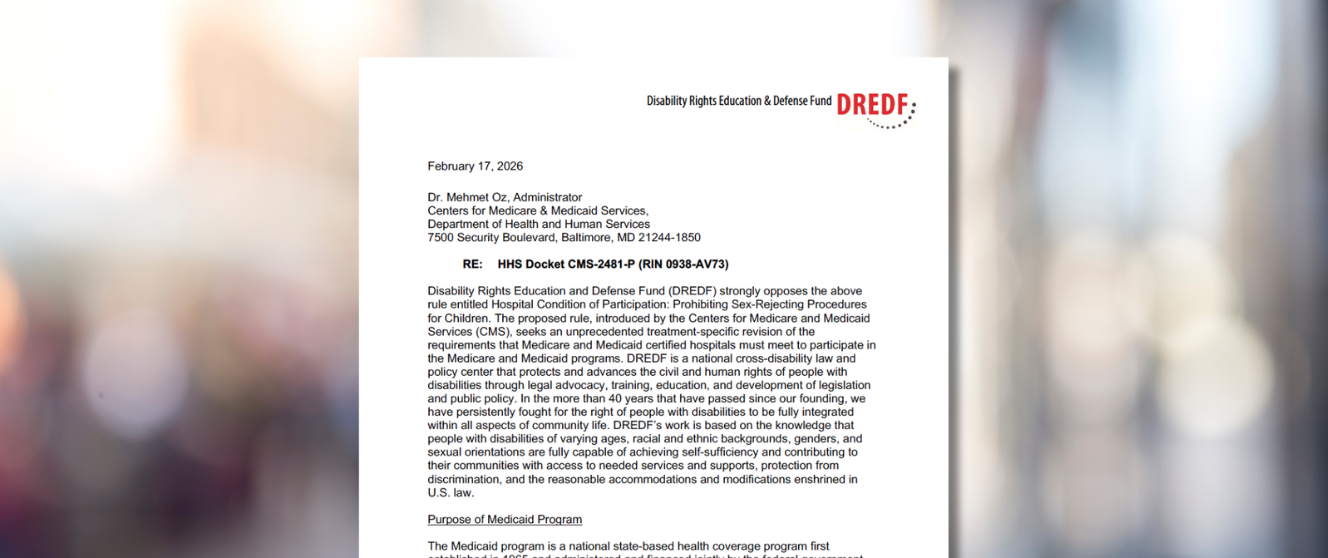
The Supreme Court Will Hear Oral Arguments in Moyle v. United States on Wednesday. The Court Will Decide Whether Hospitals Must Provide Pregnant People with Emergency Abortion Care.
FOR IMMEDIATE RELEASE
April 23, 2024
Contacts:
Tina Pinedo, DREDF Communications Director, media@dredf.org
BERKELEY, CA — Tomorrow, April 24, 2024, oral argument in Moyle v. United States will be heard by the U.S. Supreme Court. The legal issue being decided is whether a federal law called the Emergency Medical Treatment and Labor Act (EMTALA) “preempts,” or overrides, Idaho’s state abortion ban. The case will have broad implications for other states with similar abortion bans.
Preemption is a legal concept that has its roots in the Supremacy Clause (Article IV, Paragraph 2) of the United States Constitution. According to the Constitution, federal law and the United States Constitution generally take precedence over state laws and state constitutions.
EMTALA, a federal law, requires emergency departments in hospitals that receive federal funds to provide emergency stabilizing treatment, including abortion, when it is necessary to protect a patient’s health. For example, if a pregnant person’s water breaks too early (a condition called preterm premature rupture of membranes, or “PPROM”), they would be at high risk for sepsis, a dangerous and life threatening infection that can cause organ failure. Under EMTALA, an emergency room doctor would be required to provide an emergency stabilizing abortion to prevent these horrible outcomes.
However, some states’ abortion bans, including Idaho’s abortion ban, make it illegal for a doctor to provide an abortion unless the patient’s life is currently at risk. This conflicts with EMTALA’s protections because EMTALA requires doctors to provide stabilizing care as soon as a patient’s health is in danger, while Idaho’s ban requires that doctors wait to provide an abortion until a patient’s condition has deteriorated and they are on the brink of death.
This case is important for the disability community because pregnant disabled people are at significantly higher risk for almost all negative pregnancy outcomes and are eleven times more likely to die during childbirth than nondisabled people. People with disabilities also experience more barriers to obtaining medical care which may exacerbate these outcomes. As such, disabled pregnant people may be more likely to need access to the emergency stabilizing abortion care that EMTALA protects.
In March, DREDF, Women Enabled International, Legal Voice, and the law firm of Covington & Burling, LLP filed an amicus brief with the Supreme Court in this case on behalf of several disability rights organizations and advocates. The brief highlighted the realities discussed above and explains that letting state abortion bans stand despite their conflict with EMTALA would harm disabled pregnant people.
The Supreme Court must choose whether it values the lives and health of pregnant people in need of emergency care, or whether it would rather let states strip pregnant people of their bodily autonomy and safety.
# # #
ABOUT THE DISABILITY RIGHTS EDUCATION AND DEFENSE FUND
Disability Rights Education and Defense Fund (DREDF) is a leading national civil rights law and policy center directed by individuals with disabilities and parents who have children with disabilities. Founded in 1979, DREDF works to advance the civil and human rights of people with disabilities through legal advocacy, training, education, and public policy and legislative development. Learn more at dredf.org.

